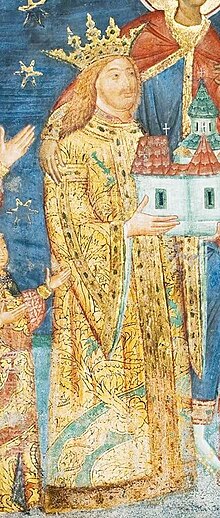Stephen the Great (category Polish–Ottoman War (1485–1503))
common for Wallachian princes. The choice was either "an underlining of the Moldo–Wallachian unity which Prince Stephen had sought to achieve", or, more precisely...
103 KB (12,718 words) - 16:47, 8 November 2024
Academy of Berlin, wrote a history book called Hronicul vechimei a Romano-Moldo-Vlahilor (Chronicle of the Ancientness of the Romanian-Moldavian-Vlachs)...
65 KB (7,601 words) - 23:34, 9 November 2024
separation of powers, abolition of privilege, an end to corvées, and a Moldo-Wallachian union. Referring to the latter ideal, Kogălniceanu stressed that...
108 KB (12,218 words) - 04:04, 11 November 2024
Toktogul – Kyrgyz Musician Toktogul Satilganov Togolok-Moldo Rural District (Naryn) – Togolok Moldo, Kyrgyz poet Toktomat Zulpuev (Nookat) – Toktomat Zulpuev...
300 KB (32,181 words) - 07:26, 10 November 2024
Nicolae Iorga (section Byzantine and Ottoman studies)
speeches, În era reformelor ("In the Age of Reforms"), a book on the 1859 Moldo–Wallachian Union (Unirea principatelor, "The Principalities' Union"), and...
229 KB (27,181 words) - 21:09, 10 November 2024
Hohenzollern as Domnitor and a proclamation stressing the perpetuity of the Moldo-Wallachian union. Speaking in Parliament, he likened the adoption of foreign...
71 KB (8,274 words) - 19:45, 10 November 2024
Rosetti (Ruset) family, of Greek-Byzantine and Phanariote origin, joined the Moldo-Wallachian boyar class in the 17th century, experiencing supreme political...
143 KB (17,882 words) - 02:59, 4 September 2024






